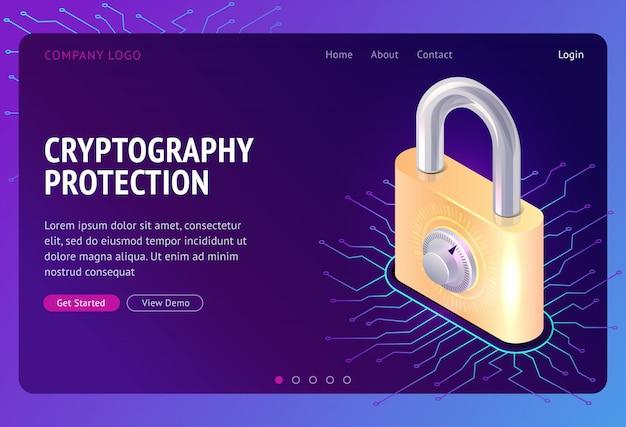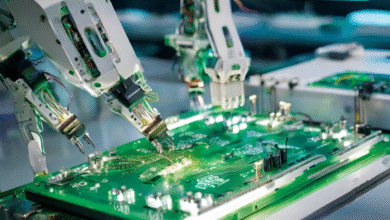Why PKI Is Essential For Safe And Scalable Network Security

Imagine a scenario in which communications, transactions, and even emails can be hijacked in a cyberattack. Without a secure platform, companies can lose sensitive information, customers’ identities can be hijacked, and companies cannot trust them.
With emerging cyber threats, network security must be strong and capable but flexible enough to adapt to an ever-changing virtual environment. This is where Public Key Infrastructure (PKI) comes in.
PKI is not a security mechanism but a trustful pillar in an age of technology. It validates, encodes, and confirms electronic communications integrity. It is necessary for secure connectivity in an era of unprecedented boom in cybercrimes, but most don’t appreciate its value and utility.
The article below will dissect PKI, its application in offering secure and safe network security, and its role in enabling companies to expand, but not at security’s expense.
Understanding PKI and How It Works
Essentially, PKI is a mechanism for generating, storing, and authenticating digital certificates and keys for use in cryptography. It enables secure network communications through asymmetrical encryption, with a public key for enciphering and a private key for deciphering information.
Only approved entities can access sensitive information through such a mechanism, and no one else can access it, protecting information from unauthorized access and information loss.
Moreover, PKI employs a secure Certificate Authority (CA) that issues digital certificates to verify and validate persons, machines, and programs for legitimacy. Certificates build a trust chain, protecting communications and ensuring that all communications have been encrypted and validated.
As security vulnerabilities in cyberspace evolve and modify over a period, companies employing PKI have a malleable security environment that can adapt to new security concerns.
Below are some more benefits of PKI:
1. Enhancing Authentication and Preventing Identity Fraud
Cyberthieves use insecure authentication processes to access networks. Traditional password security no longer suffices, and hackers utilize complex techniques, including credential stuffing, brute force, and phishing, to bypass security.
PKI, in contrast, offers a secure alternative to certificate security.
Whereas passwords authenticate servers, machines, and persons, PKI authenticates them with cryptographic credentials. It eliminates password-related security issues and unapproved access. For example, organizations using PKI-based authentication can ensure that only authorized workers gain access to company networks, lessening identity fraud and insider attack vulnerability.
2. Securing Information with Strong Encryption
Sensitive information is exchanged between cloud providers, machines, and users in today’s economy, and such information must be safeguarded from intercepts at any cost. PKI keeps information in motion and at rest secure through encryption, and unauthorized entities cannot even read it.
For example, financial institutions utilize PKI to secure web banking transactions, keeping information about customers private. Similarly, medical care providers use PKI to secure electronic medical files, preventing information leakages from causing privacy violations.
By utilizing PKI, companies can confidently transmit sensitive information without a chance of exposure.
3. Enabling Scalability Without Compromising Security
Security infrastructure will have to expand with growing companies, but most security tools become inefficient and costly when companies grow larger.
Considering that PKI is an expandable and flexible security infrastructure that can manage an increased number of machines, programs, and users.
For instance, companies that implement cloud computing can embed PKI in their infrastructure for secure access to cloud assets. Likewise, companies growing in the workforce can issue new workers with digital certificates seamlessly, not interfering with current security processes. That ease of scalability is a big reason PKI is a perfect fit for companies wanting to secure networks but not sacrifice efficiency in operations.
4. Preserving Regulatory Compliance and Industry Standards Support
Organizations in any sector must comply with strong cybersecurity legislation and information protection laws. In the event of non-conformity, companies can face strong penalties, legal actions, and loss of trust and goodwill. Fortunately, PKI helps companies comply with legislation and laws through strong encryption, authentication, and information integrity.
For example, PKI adheres to compliance requirements such as the Health Insurance Portability and Accountability Act (HIPAA) and General Data Protection Regulation (GDPR) in that sensitive information remains secure and encrypted.
With PKI, companies can ensure compliance and best practices in cybersecurity and, therefore, lessen legal repercussions and loss of trust with customers.
5 Strengthening Zero Trust Security Frameworks
The traditional security model of trusting inner networks and defending outer ones no longer works. Organizations have started deploying zero-trust security architectures, under which constant verification of all machines and users is a necessity.
PKI forms a critical component of Zero Trust in that it necessitates strong authentication and encryption techniques.
For instance, Zero Trust architectures can use PKI to authenticate all and any individual and grant access to assets in a corporation. Furthermore, PKI can secure access remotely, and employees can work remotely with no loss of security in a network. All these contribute to a much better security position with less opportunity for a cyberattack and an attack via an insider and a lowered attack surface in general.
6. Securing Internet of Things (IoT) Devices
As IoT expands, organizations are connecting IoT devices at a level not seen anywhere else in the past. Most IoT devices, nevertheless, lack any built-in security and, thus, become a perfect target for hackers. PKI comes with a guaranteed solution in terms of protecting IoT devices with digital certificates and encryption.
For instance, smart home gadgets, industrial sensors, and medical devices can utilize PKI to verify communications and lock out unapproved access. In this manner, only approved gadgets will converse in the network, and any chance of a cyberattack will be reduced to a minimum. With increased IoT use, PKI will increasingly become an important tool in securing such interconnected environments.
Wrapping Up
The virtual world is developing at a breakneck pace, and with it, opportunity and cybersecurity issues. In its lack, companies encounter information loss, identity robbery, and compliance penalties.
Having said that, PKI is the backbone of network security, delivering assurance, encryption, and integrity for electronic communications.
By utilizing PKI, businesses can secure sensitive information, authenticate and secure users, and make secure scalability a reality.




